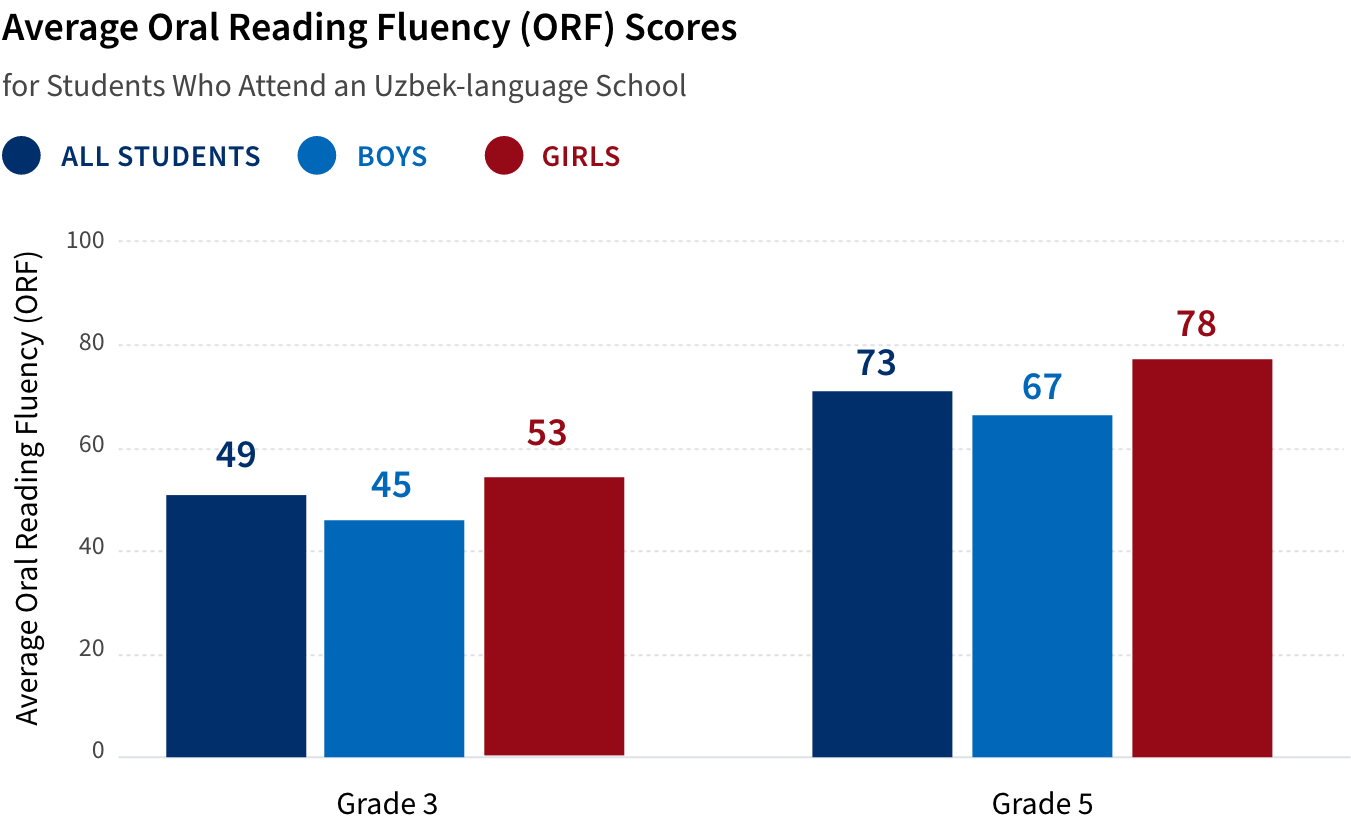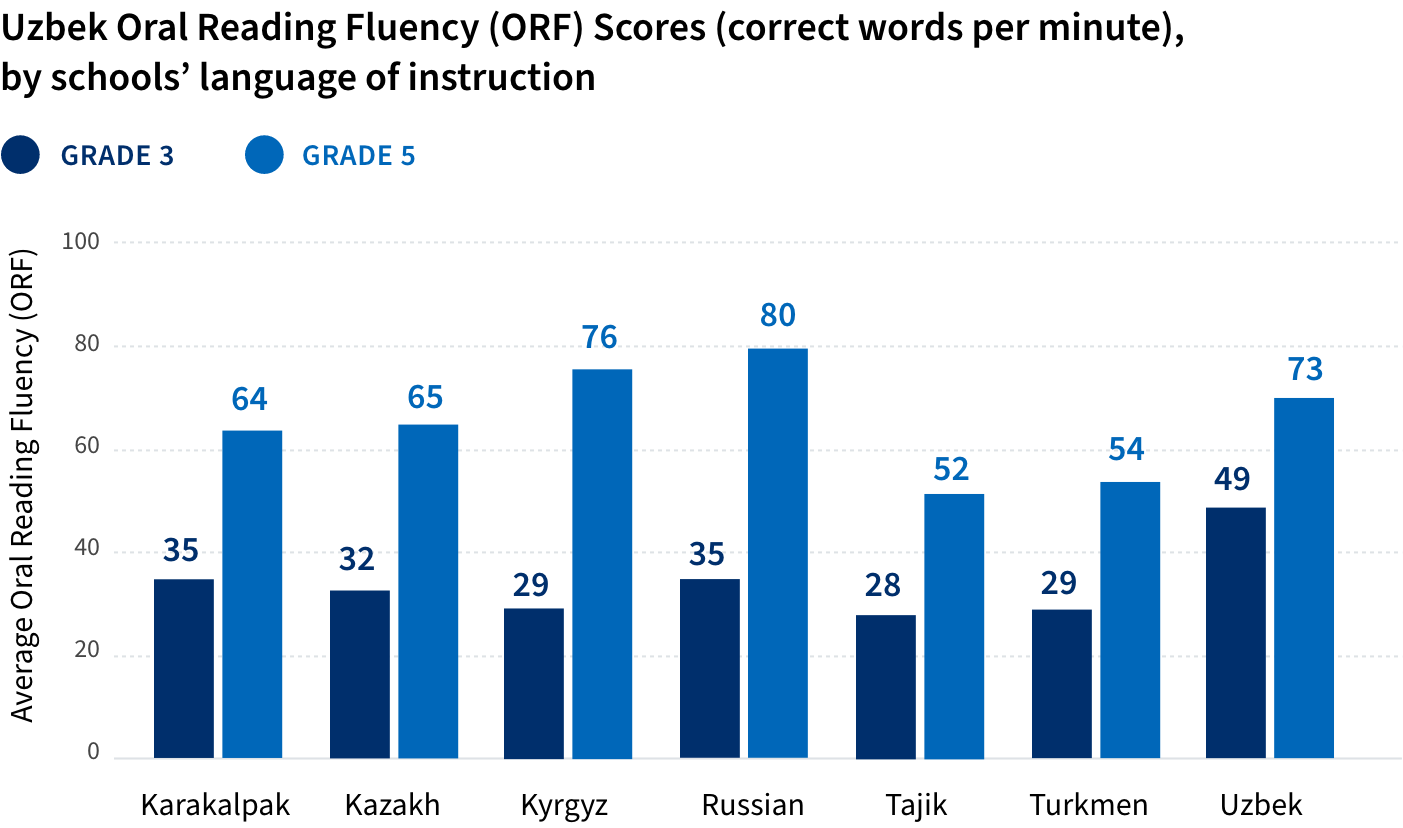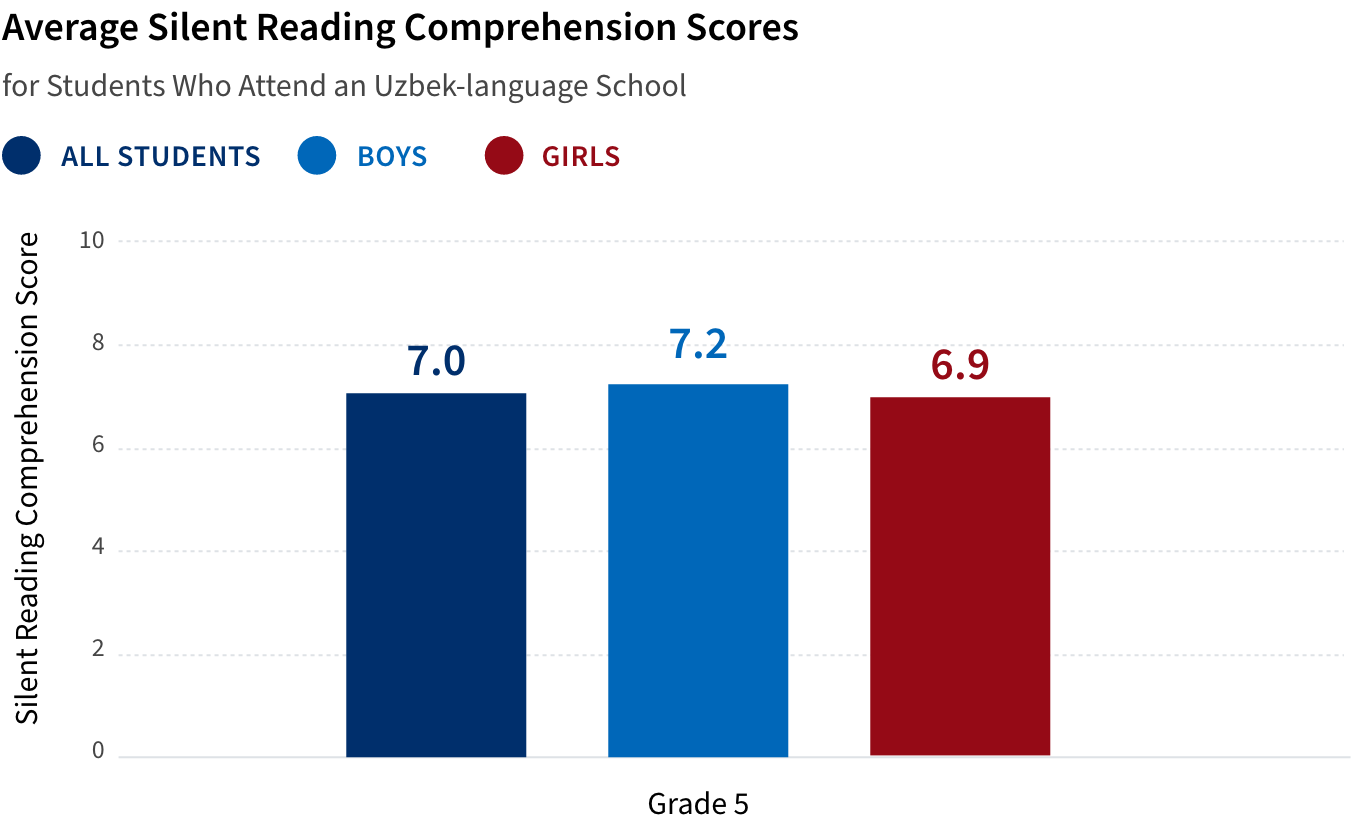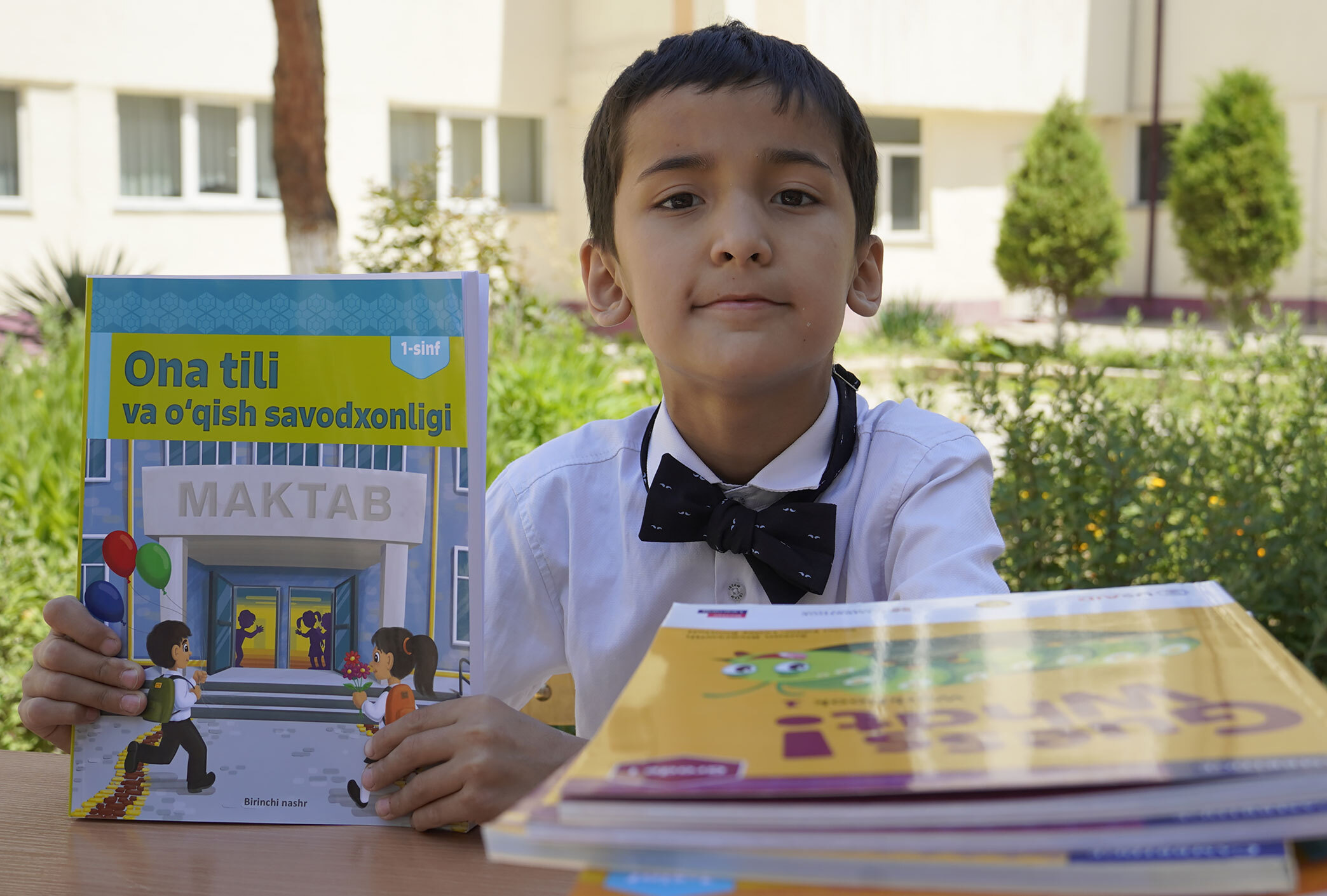The Government of Uzbekistan's Ministry of Public Education conducted a national Early Grade Reading Assessment (EGRA) and math assessment in 2021 with support from USAID.
This large national assessment of student reading and math ability is the first of its kind in Uzbekistan. EGRA and Early Grade Math Assessment (EGMA) methodologies were used to assess students in grades 3 and 5. The assessments were part of a broader effort by the Ministry to implement education reform. The data collected will inform the Ministry's plans to address gaps in student learning and strengthen the system to support foundational literacy and numeracy.
The Ministry assessed over 21,000 students at the start of grades 3 and 5. The EGR Barometer presents results of the reading assessments by the school’s language of instruction (Uzbek, Russian, Karakalpak, Kazakh, Kyrgyz, Tajik, or Turkmen), which in most cases is the students’ home language or “first language”. For non-Uzbek schools, students were assessed in the school’s language of instruction and in Uzbek as a second language. The results are nationally representative and for Uzbek schools, the results are regionally representative.
Key Takeaways from the National EGRA
The All Children Reading-Asia Report on the 2021 Uzbekistan National Early Grade Reading and Mathematics Assessments (PDF, 1.6 MB) report outlines several key findings that have direct implication on the Ministry's education reform agenda:
-
Consistent with global trends, girls read at higher rates than boys in both grades.

-
Students studying in Uzbek as a second language read Uzbek at slower rates than students studying Uzbek as their first language, with the exception of students studying in Russian and Kyrgyz.

-
Many students demonstrated a good understanding of a grade-level text. Grade 5 students studying in Uzbek scored on average 70% on reading comprehension.

Students have made significant progress in Uzbekistan in their foundational literacy skills. Now the focus is to strengthen the education system to support under-performing groups and improve reading comprehension.


